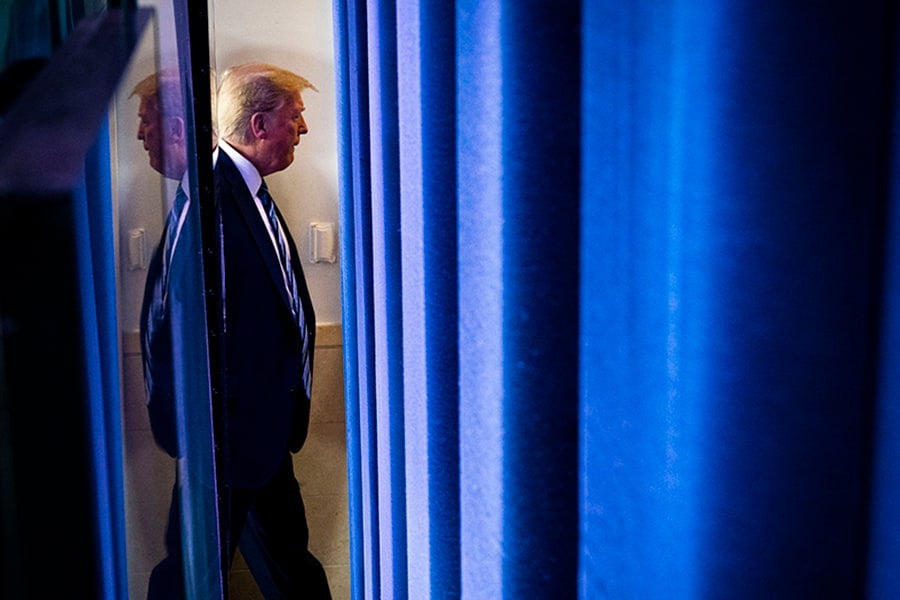
China mounts aggressive defense to calls for Covid-19 compensation
Beijing has adopted a "no-holds barred" diplomatic push to quash criticism of its handling of the outbreak and to fend off efforts, including by President Trump, to hold it financially accountable
 President Donald Trump departs a daily briefing regarding the coronavirus pandemic, at the White House in Washington, April 21, 2020. Beijing has adopted a “no-holds barred” diplomatic push to quash criticism of its handling of the outbreak and to fend off efforts to hold it financially accountable.
President Donald Trump departs a daily briefing regarding the coronavirus pandemic, at the White House in Washington, April 21, 2020. Beijing has adopted a “no-holds barred” diplomatic push to quash criticism of its handling of the outbreak and to fend off efforts to hold it financially accountable.
Image: Doug Mills/The New York Times
China is pushing back against the growing chorus of voices around the world calling for the country to pay compensation for the damage caused by the coronavirus pandemic, which originated in the Chinese city of Wuhan.
Politicians in the United States are “lying through their teeth,” a spokesman for the Chinese Foreign Ministry, Geng Shuang, said at a news briefing Tuesday.
The spokesman’s comments came one day after President Donald Trump suggested that the United States would seek “substantial” compensation for Beijing’s handling of the coronavirus outbreak.
Richard McGregor, a China analyst with the Lowy Institute in Sydney, said the dispute reflects China’s refusal to accept criticism at a time when its rival, the United States, seems weak and continues to struggle with the virus, political division and mass unemployment.
“Beijing is mounting an all-hands-on-deck, no-holds-barred, global diplomatic effort to stem any move anywhere to censure it over its handling of the initial coronavirus outbreak in Wuhan,” McGregor said.
©2019 New York Times News Service




